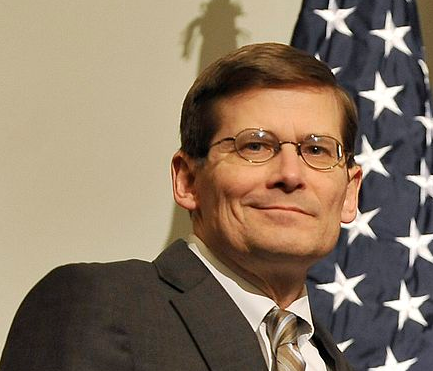In addition to green-lighting debt collection calls to cell phones, another of the deficit plans Obama rolled out today is basically claiming credit for military withdrawals.
The plan also realizes more than $1 trillion in savings over the next 10 years from our drawdowns in Afghanistan and Iraq.
As DDay notes, these “cuts” are scheduled to happen anyway. It’s just funny accounting, particularly since the foreverwar hawks will fight some of these changes in any case.
But there’s another reason I think this is funny accounting. We’re not withdrawing, we’re switching to “civilian-led” efforts in these places. And Obama is not measuring the costs of these civilian-led efforts.
Such as the $100 million expansion we’re making to habeas-free Parwan prison in Afghanistan.
The U.S. Army Corps of Engineer (USACE) Middle East District intends to solicit names of construction firms or joint ventures experienced in working in the Middle East region who are interested in submitting a firm-fixed price offer for this project. To be considered a construction firm, the firm must perform construction as a significant portion of its business. This announcement is for the construction of Detention Facility in Parwan (DFIP), Bagram, Afghanistan. The contractor shall comply with all base security requirements. Defense Base Act Insurance and Construction surety will be required. The estimated cost of the project is between $25,000,000 to $100,000,000.
PROJECT SCOPE: The scope of the Project includes construct detainee housing capability for approximately 2000 detainees. [my emphasis]
Glenn Greenwald hits much of what needs to be said about this expansion:
Budgetary madness to the side, this is going to be yet another addition to what Human Rights First recently documented is the oppressive, due-process-free prison regime the U.S. continues to maintain around the world:
Ten years after the September 11 attacks, few Americans realize that the United States is still imprisoning more than 2800 men outside the United States without charge or trial. Sprawling U.S. military prisons have become part of the post-9/11 landscape, and the concept of “indefinite detention” — previously foreign to our system of government — has meant that such prisons, and their captives, could remain a legacy of the 9/11 attacks and the “war on terror” for the indefinite future. . . . .
The secrecy surrounding the U.S. prison in Afghanistan makes it impossible for the public to judge whether those imprisoned there deserve to be there. What’s more, because much of the military’s evidence against them is classified, the detainees themselves have no right to see it. So although detainees at Bagram are now entitled to hearings at the prison every six months, they’re often not allowed to confront the evidence against them. As a result, they have no real opportunity to contest it.
In one of the first moves signalling just how closely the Obama administration intended to track its predecessor in these areas, it won the right to hold Bagram prisoners without any habeas corpus rights, successfully arguing that the Supreme Court’s Boumediene decision — which candidate Obama cheered because it guaranteed habeas rights to Guantanamo detainees — was inapplicable to Bagram. Numerous groups doing field work in Afghanistan have documented that the maintenance of these prisons is a leading recruitment tool for the Taliban and a prime source of anti-American hatred. Despite that fact — or, more accurately (as usual), because of it — the U.S. is now going to build a brand new, enormous prison there.
And then there’s the expansion we’re doing to the “Embassy” in Baghdad. Dan Froomkin lays this out.
U.S. diplomats, military advisers and other officials are planning to fall back to the gargantuan embassy in Baghdad — a heavily fortified, self-contained compound the size of Vatican City.
The embassy compound is by far the largest the world has ever seen, at one and a half square miles, big enough for 94 football fields. It cost three quarters of a billion dollars to build (coming in about $150 million over budget). Inside its high walls, guard towers and machine-gun emplacements lie not just the embassy itself, but more than 20 other buildings, including residential quarters, a gym and swimming pool, commercial facilities, a power station and a water-treatment plant.
[snip]
The number of personnel under the authority of the U.S. ambassador to Iraq will swell from 8,000 to about 16,000 as the troop presence is drawn down, a State Department official told The Huffington Post. “About 10 percent would be core programmatic staff, 10 percent management and aviation, 30 percent life support contractors — and 50 percent security,” he said.
[snip]
As the Department of Defense pulls out and its spending drops, the State Department is expecting its costs to skyrocket. State asked Congress for $2.7 billion for its Iraqi operations in fiscal year 2011, and got $2.1 billion. It wants $6.2 billion for next year. The Senate Foreign Relations Committee estimates that State’s plans will cost $25 to $30 billion over the next five years.
I use scarequotes for the word “Embassy” because I think it’s time we set aside the fiction that this is a State Department operation. Froomkin notes, for example, that the $6 billion a year State will be spending on this “Embassy” adds to the only $14 billion State spends, in total, right now.
It’s not just the actual spending I’m objecting to–the $100 million here, the $30 billion there–though Glenn’s point, that we refuse to spend a fraction of $100 million to fix CA’s prison overcrowding, is an important one.
It’s that in one of our colonies we’re doubling the size of our replacement Gitmo, right there in plain view of the people it will antagonize (though the expansion does raise questions about whether we’ll fill the prison with detainees from other countries, too).
And in another of our colonies we’re expanding our giant concrete intelligence bunker (I am open to suggestions for better names for this monstrosity), replete with numbers equal to the numbers of troops Nuri al-Maliki can’t publicly approve. Will the fact that intelligence and contractor personnel are watching over our colony be any less incendiary to the Moqtada al-Sadrs of Iraq than men and women we explicitly called troops? Isn’t this stupid fiction–with the legal fiction it exploits–be in a number of ways worse?
Call it a crazy suspicion. But our non-withdrawal withdrawals from our colonies seems ripe for blowback in a very very big (and expensive) way.
Of course that’s precisely the kind of cost even the deficit hawks refuse to count, so we’ll never see it accounted for in any budget.


